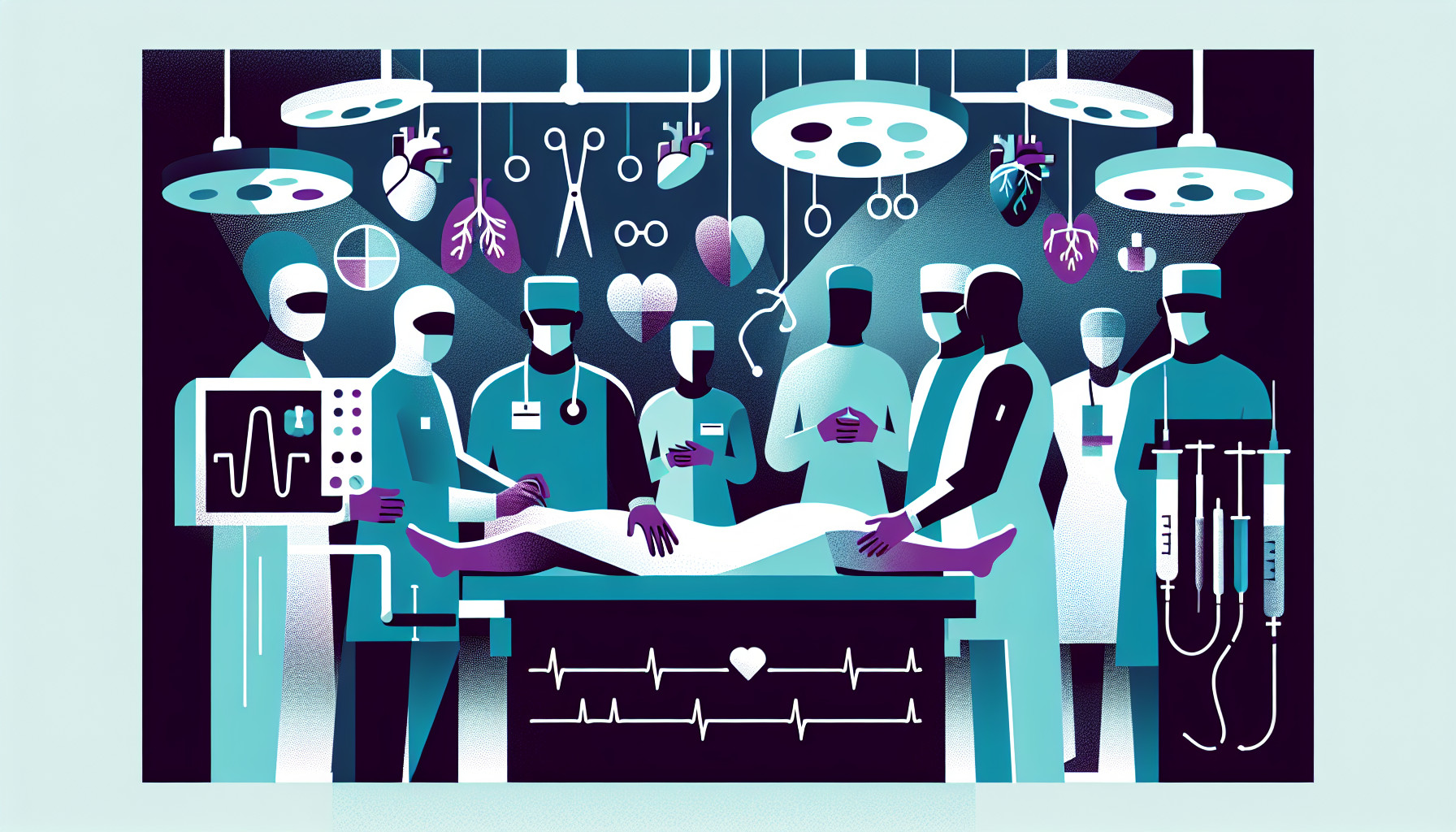Our Summary
This research paper discusses how to improve the success of transplant surgeries by preventing the recipient’s immune system from rejecting the new organ. Transplants often require strong drugs to suppress the immune system and prevent rejection, but these drugs can have harmful side effects such as increased risk of infections and cancer. The study suggests that “tolerance induction” might be a better approach - this is a method that makes the immune system accept the new organ, so less harmful drugs are needed. The paper reviews various methods of tolerance induction that have been tested in animals. These methods could potentially be used in human surgeries in the future to improve the survival rates of transplanted organs.
FAQs
- What is vascularized composite allotransplantation?
- What is “tolerance induction” and how can it improve the success of transplant surgeries?
- What are the potential side effects of the drugs currently used to prevent organ rejection after a transplant?
Doctor’s Tip
One helpful tip a doctor might tell a patient about vascularized composite allotransplantation is to follow the prescribed medication regimen carefully to prevent rejection of the transplanted organ. It is important to take immunosuppressant medications as directed to help the body accept the new organ and minimize the risk of rejection. Additionally, maintaining a healthy lifestyle, including regular exercise and a balanced diet, can help support overall health and the success of the transplant surgery. Regular follow-up appointments with healthcare providers are also crucial to monitor progress and address any potential issues early on.
Suitable For
Patients who are recommended for vascularized composite allotransplantation typically include those who have experienced severe trauma, burns, or congenital defects that have resulted in significant functional and aesthetic impairments. These patients may have exhausted all other treatment options and have a limited quality of life without a transplant. Additionally, candidates for vascularized composite allotransplantation must have a strong support system in place to assist with the post-transplant care and rehabilitation process.
Timeline
Before Vascularized Composite Allotransplantation (VCA):
- Patient undergoes evaluation and screening process to determine eligibility for VCA.
- Patient is placed on waiting list for a suitable donor match.
- Patient undergoes pre-operative preparation and counseling.
- Donor organ is procured and prepared for transplantation.
- Surgery is performed to transplant the donor organ to the recipient.
After Vascularized Composite Allotransplantation (VCA):
- Patient undergoes post-operative care and monitoring in the hospital.
- Patient is closely monitored for signs of rejection or complications.
- Patient undergoes rehabilitation and physical therapy to regain function of the transplanted organ.
- Patient is prescribed immunosuppressant drugs to prevent rejection of the new organ.
- Long-term follow-up care is provided to monitor the health and function of the transplanted organ.
What to Ask Your Doctor
- What is vascularized composite allotransplantation?
- Am I a suitable candidate for this type of transplant?
- What are the potential risks and complications associated with this surgery?
- How long is the recovery process and what can I expect during the rehabilitation period?
- What kind of medications will I need to take post-surgery to prevent rejection?
- Are there any alternative treatments or therapies that could be considered instead of a transplant?
- What is the success rate of vascularized composite allotransplantation?
- How often will I need to follow up with my transplant team after the surgery?
- Are there any lifestyle changes I need to make to support the success of the transplant?
- What ongoing care and monitoring will be required to ensure the long-term success of the transplant?
Reference
Authors: Huelsboemer L, Kauke-Navarro M, Reuter S, Stoegner VA, Feldmann J, Hirsch T, Kueckelhaus M, Dermietzel A. Journal: Transpl Int. 2023 Feb 9;36:10955. doi: 10.3389/ti.2023.10955. eCollection 2023. PMID: 36846605
